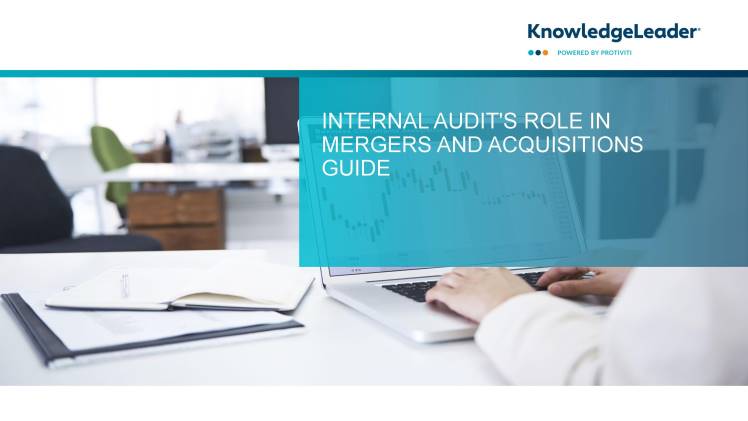The Indispensable Function of Auditing in Mergers and Acquisitions

Introduction
Mergers and acquisitions (M&A) are pivotal strategic decisions for businesses seeking growth, diversification, or market consolidation. While these transactions offer potential benefits, they also pose significant risks if not executed properly. One critical element that plays a crucial role in ensuring the success of M&A deals is auditing. Auditing in M&A transactions involves a comprehensive examination of financial records, operational practices, and risks associated with the target company. In this article, we will explore the indispensable role of auditing in mergers and acquisitions, its objectives, processes, and the value it brings to all stakeholders involved.
Understanding Mergers and Acquisitions
Mergers and acquisitions represent the consolidation of two or more companies, typically with the aim of achieving strategic goals, such as expanding market share, entering new markets, or realizing cost synergies. Mergers involve two companies merging into one entity, while acquisitions refer to one company purchasing another. Regardless of the form, these transactions are complex and involve a myriad of financial, operational, and legal considerations.
The Objectives of Auditing in M&A
Auditing in M&A serves several key objectives:
1. Financial Due Diligence: Auditors meticulously examine the financial records of the target company to assess its financial health, stability, and the accuracy of financial statements. This process helps identify potential risks and liabilities that may affect the deal.
2. Identification of Hidden Liabilities: audit firms in dubai aim to uncover any hidden or undisclosed liabilities that could impact the valuation of the target company. These may include pending lawsuits, tax liabilities, or contingent obligations.
3. Verification of Assets and Liabilities: Auditors verify the existence and value of the target company’s assets and liabilities, ensuring that they align with the information provided during negotiations.
4. Assessment of Internal Controls: Auditing includes an evaluation of the target company’s internal controls and accounting practices. Weak controls can signal potential operational and financial risks.
5. Risk Assessment: Auditors assess the overall risk profile of the target company, helping the acquiring company make informed decisions about the deal’s viability.
The Auditing Process in M&A
The auditing process in mergers and acquisitions typically involves several stages:
1. Planning: Before diving into the audit, audit firms in dubai develop a comprehensive plan outlining the scope, objectives, and resources required for the audit. They also identify key risks and areas of focus.
2. Information Gathering: Auditors collect financial statements, tax records, legal agreements, contracts, and other relevant documents from the target company. This phase is crucial for obtaining a clear picture of the company’s financial health.
3. Risk Assessment: Auditors assess various financial and operational risks associated with the target company. They may analyze industry-specific risks, market conditions, and macroeconomic factors that could impact the deal.
4. Financial Statement Audit: The core of auditing in M&A involves a thorough examination of the target company’s financial statements. This includes scrutinizing revenue recognition, expense management, and the accuracy of financial reporting.
5. Due Diligence: Due diligence extends beyond financials. Auditors evaluate the target company’s contracts, leases, intellectual property, customer relationships, and employee contracts to identify any risks or issues.
6. Reporting: After completing the audit, audit firms in dubai prepare a detailed report highlighting their findings. This report is shared with the acquiring company’s management and legal advisors, guiding their decision-making process.
Value Added by Auditing in M&A
Auditing plays a pivotal role in mergers and acquisitions, offering several benefits to all stakeholders involved:
1. Risk Mitigation: Auditing helps identify and quantify risks associated with the target company. This allows the acquiring company to make informed decisions regarding deal structure, pricing, and risk mitigation strategies.
2. Financial Transparency: Auditing provides a clear and accurate picture of the target company’s financial health. This transparency is essential for negotiating a fair valuation and structuring the deal effectively.
3. Legal Compliance: Auditors assess the target company’s compliance with applicable laws and regulations. This ensures that the acquiring company is not exposed to legal liabilities post-acquisition.
4. Negotiation Leverage: Armed with the audit findings, the acquiring company gains negotiation leverage. They can use the audit results to renegotiate terms or adjust the deal’s structure based on the identified risks and liabilities.
5. Enhanced Post-Acquisition Integration: Auditing helps the acquiring company plan for a smoother post-acquisition integration process. By understanding the target company’s operations and potential challenges, integration efforts can be better coordinated.
Challenges in Auditing M&A Transactions
While auditing in M&A is invaluable, it comes with its set of challenges:
1. Time Constraints: M&A transactions often have tight timelines. Audit firms in dubai must work efficiently to meet deadlines without compromising the thoroughness of the audit.
2. Data Accessibility: Accessing the target company’s financial and operational data can be challenging, especially if the target is not cooperative or if data is stored in disparate systems.
3. Scope Creep: Auditors must manage scope creep, ensuring that the audit remains focused on key areas of concern without becoming overly exhaustive.
4. Integration of Findings: Effectively integrating audit findings into the negotiation process and post-acquisition planning requires coordination between auditors, legal advisors, and management.
Conclusion
In the dynamic world of mergers and acquisitions, auditing plays an indispensable role in mitigating risks, ensuring financial transparency, and facilitating informed decision-making. It empowers acquiring companies to make well-informed decisions, negotiate effectively, and plan for successful post-acquisition integration. Audit firms in dubai act as trusted advisors, offering critical insights that can make or break an M&A deal. In this way, auditing is not just a compliance requirement but a strategic imperative for businesses venturing into the world of mergers and acquisitions.




